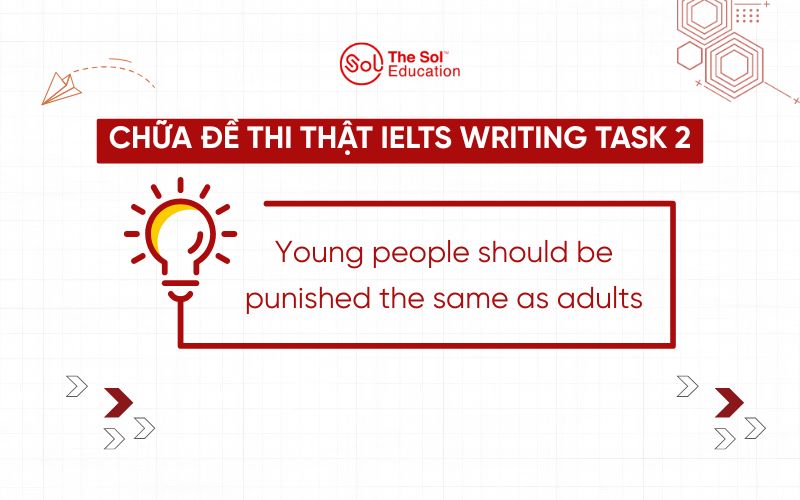Young people who commit serious crimes, such as robbery and violent attacks, should be punished the same as adults. Do you agree or disagree?

Nowadays, there is a belief that teenagers who commit criminal offenses should be treated the same as adults. However, I do not share this sentiment due to several reasons that will be further elaborated in this essay.
On the one hand, the harsh punishment of young people who break the law is morally unjustifiable. First of all, it is quite unfair for juvenile offenders to be punished with the similar severity applied to adults, when the former are not as aware of the legal consequences as the latter. This is especially ironic considering a modern child is hyper-exposed, to the point of desensitization, to many criminal behaviors in various media they are allowed to consume, yet is woefully uneducated on the gravity of those actions. In addition, children rarely commit crimes for the sake of it, but often do so in response to the circumstances they find themselves in. Violent crimes like robberies and murder are often rampant among the youth in poor neighborhoods, simply because the fortune gained from such behaviors is, in many cases, the only source of income in their families. Punishing them for their natural reaction to their living condition would be ridiculous.
On the other hand, putting young offenders behind bars would have several serious social implications. To begin with, it often leads to increased recidivism. To be more specific, being in prison, justifiably or not, means limited access to education and work. Once they finish serving their sentences, they become fully grown adults without any degree or working experience, which makes it impossible to find a job with a stable income to sustain their own survival. At this point, what choices do these fully grown men and women have to continue living, aside from joining predatory criminal gangs? Another point to consider is that due to their limited awareness about the legality of their actions, young criminals are more likely to feel that their sentences are unfair. This breeds resentment towards the system that condemns them to confinement, which can lead to rebellion and social disorder.
In short, treating juvenile offenders the same as adult criminals is neither morally justifiable nor socially beneficial. Regarding this matter, rehabilitation and investment into impoverished areas will be better approaches since they account for their lack of legal awareness and address the socioeconomic root causes that lead to crimes in the first place.
Từ vựng hữu ích
